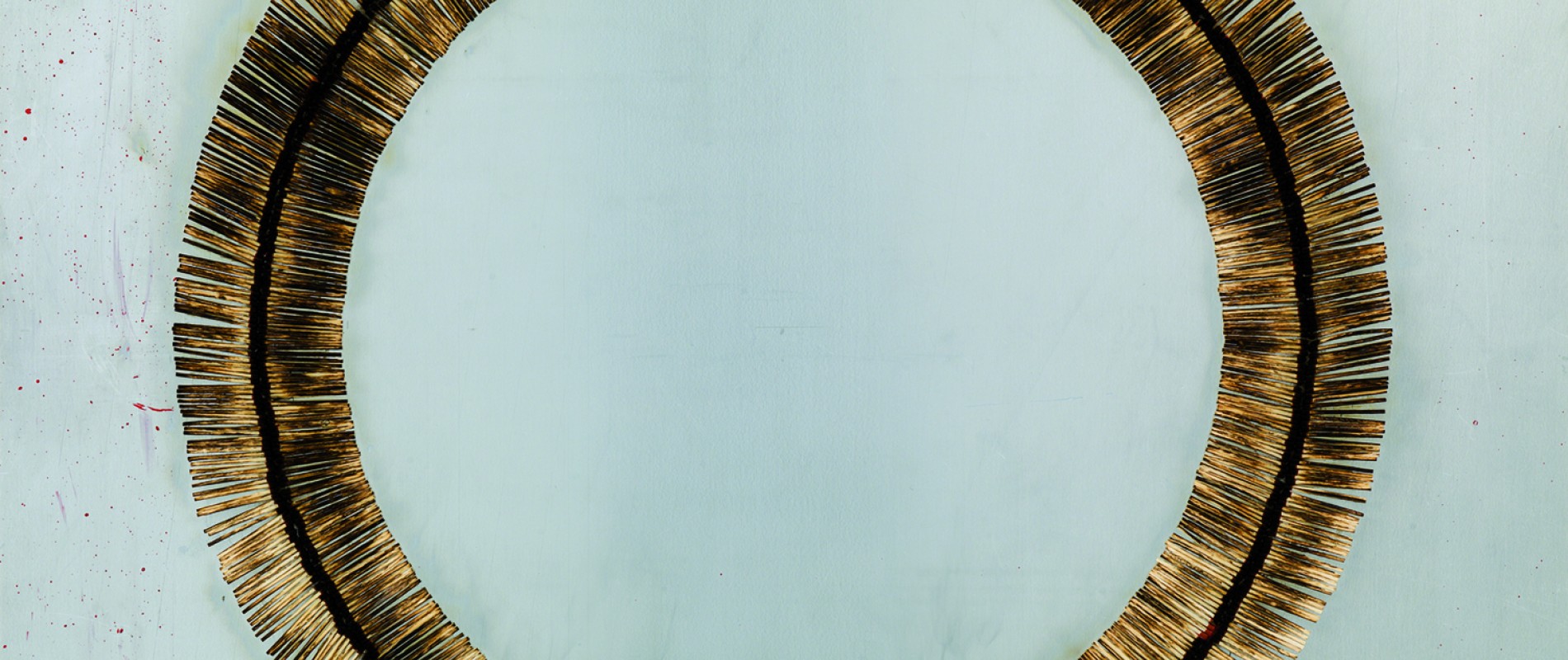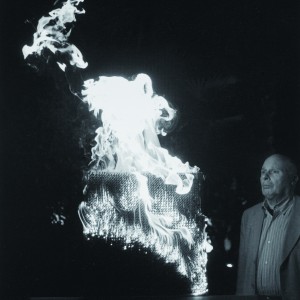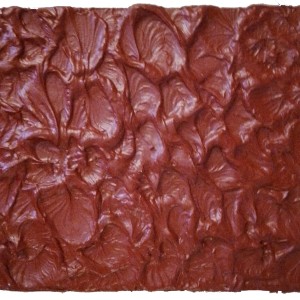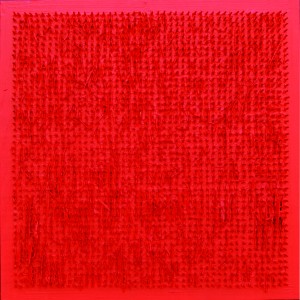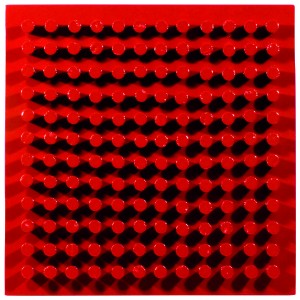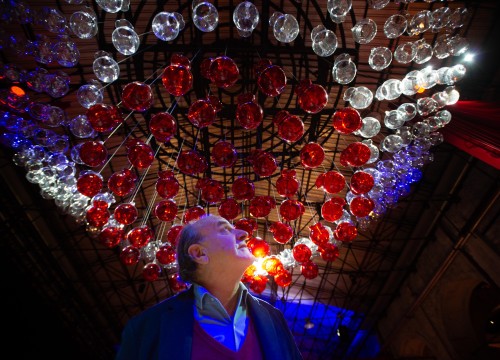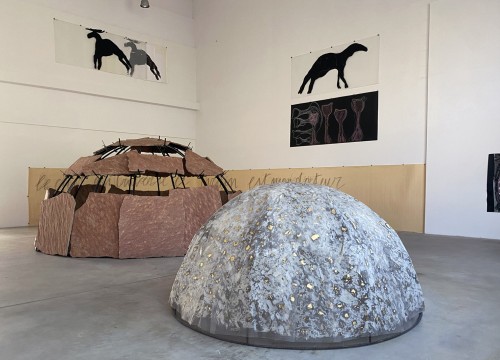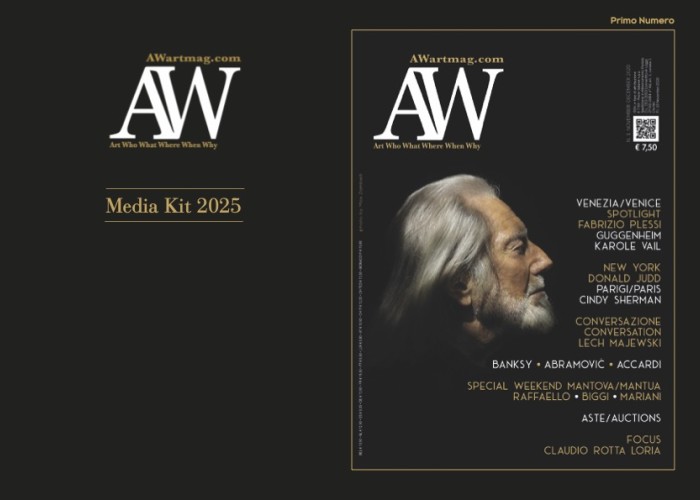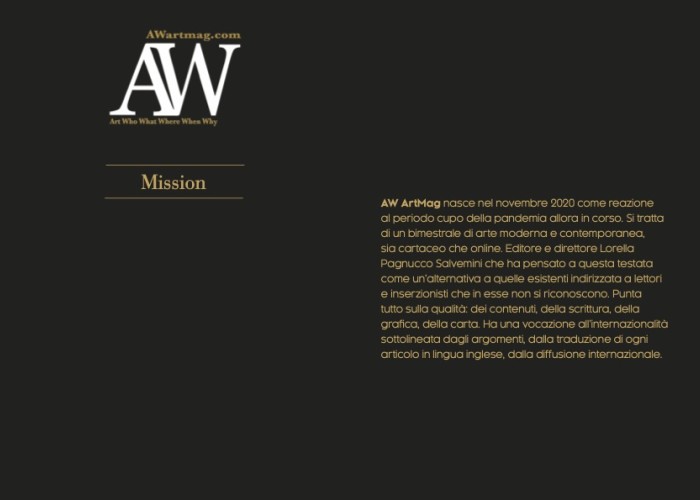A life travelling between Germany, France and Italy to the continuous discovery of itself
Loving the works of Bernard Aubertin is easy because beyond all knowledge his total monochromes, the idea of the pungent smell of his brulé and his realistic totality enter into the soul. Bernard left us with the sad feeling of a melancholy existence in which only the creative act made man truly so. In every passage of his presence on earth, he had to act upon reality, not to be overwhelmed, to show that his color and fire would shine and burn more than him, besides him.
I learned about Aubertin’s work thirty years ago, but I met him much later. I met a good person: sweet face, clean eyes, and a smile of a man of other times. As in the past, his clothing was a spokesman for a form of sadness and simplicity rooted in the heart. I remember that he shook my hand with affection, gave me a sincere hug, and understood my embarrassment of a young woman involved in a parade of unknown figures.
THE DEBUT IN '57 WITH THE FIRST MEETING WITH KLEINE, THEN CONTACTS WITH THE DŰSSELDORF GROUP ZERO AND THE RELATIONS WITH MACK, PIENE AND UECHER
Composed, cultured, and eager to create, amazed by what existence was reserving for him: this was Bernard. I think of his writings, the narratives that tell of a journey begun and ended, just as all journeys are destined to do. From the 40 square meters of a Parisian apartment on the sixth floor of rue Léopold Robert, scorching in summer and freezing in winter, to ten years spent in Brest curing sarcoidosis, then living in Germany, to his arrival in Italy and finally in Germany.
And then, his travel notes. Precise notes, descriptions of landscapes, stolen impressions, reflections. A journey was said, and a return, that one in Italy. A tour faced with the urgency and expectation of those who have not yet found a safe shelter. It is his Grand Tour, it is the discovery of himself. There are no more carriages and the postilions of the end of the eighteenth century to keep him company, no more taverns or wealthy families waiting, but taxis, trains, and friends who follow him.
HE CONCEIVED MAN ON THE WAY TO A CONTINUOUS PROGRESSION, HE HAD CONFIDENCE IN THE POSSIBILITY FOR THE INDIVIDUAL TO BE BORN AGAIN FROM THE ASHES
A tour that comes when the line-up is already rough. The origins of his work are known: the first meeting with Kleine in 1957, contacts with the Group Zero in Düsseldorf, relations with Mack, Piene, and Uecher, travels, gallery owners, merchants, but something was perhaps missing. Aubertin says that it is not possible to invent without observing what surrounds us: this sensitivity had to be found in a country close to him with the heart: the country had to be Italy.
A place where the sky, as Goethe said, has proved gracious, rich in gifts. The warmth of Italy opens a new world, and work finally flows smoothly. The rest is known. His red, his spikes, performances, books, instruments and burnt objects, and finally international recognition. The idea that there may be a possibility of continuous progression in man, confidence in the individual who is reborn from the ashes, the thought that reaching a goal is necessary to progress, become paradigms of Aubertin’s work that creates solemn and majestic artworks.
And then the disease. The cure had helped him, but a subtle melancholy had not abandoned him: a spleen increasingly deep is perceived in the words of a man now tired. And finally, the farewell; on August 31, 2015, at 11 am, Bernard, who has never been satisfied with small goals and who was always able to achieve unattainable ideals.

